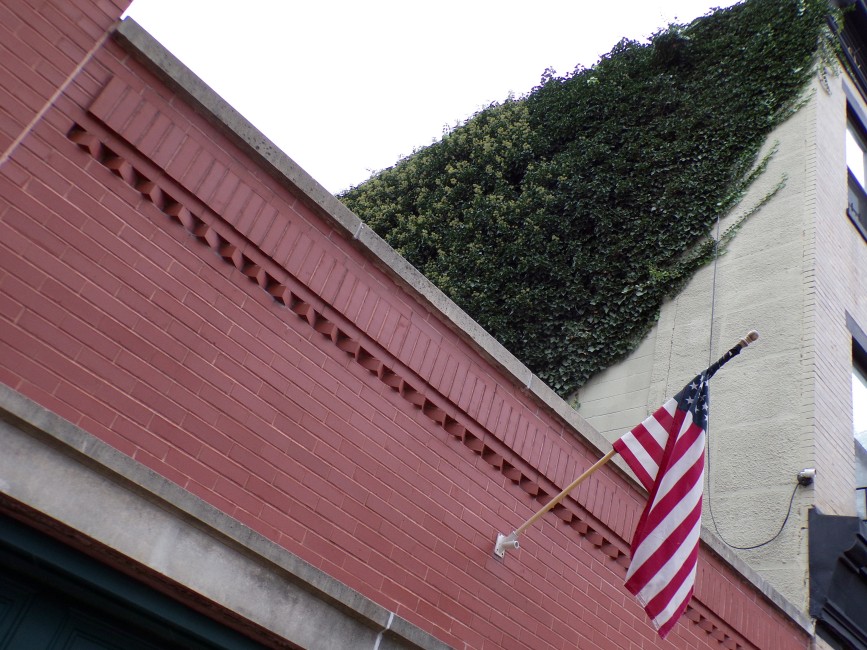
Last Memorial Day, I published an article on Second Lieutenant Carleton Burr, one of thousands of young Americans who lost his life fighting for his country in France during the First World War. Because Veterans Day commemorates the end of World War I, I thought it would be a fine occasion to revisit a small anecdote from the life of Mr. Burr.
Today, the United States and much of the world continues to abide by policies to mitigate the spread and effects of the Wuhan coronavirus. Hospitals during the First World War unsurprisingly had to deal with containing the spread of many illnesses and infections. On December 30, 2017, Mr. Burr wrote a letter to his family detailing his personal brush with quarantine during the War:
Here I am once again a free lance, having spent ten miserable days in the hospital under double quarantine with the measles! By “double quarantine,” I mean that I was confined to a small room in an army hospital which was itself under quarantine on account of many contagious diseases which were being cared for at the time within its somber walls. Luckily, letters and boxes from the outside were not denied me so that with all your generous gifts my Christmas was really a very happy one.
Carleton Burr, excerpted from “Memoirs of the Harvard War Dead in the War Against Germany“
The idea of being in a crowded wartime French hospital in 1917 under “double quarantine” with measles is a harrowing one, and, in this case, a different sort of World War I Christmas story than the one most are more familiar with. One might suspect that Mr. Burr’s stay was quite a bit less pleasant than he conveyed to his family.
In the next letter in the book, we learn that Mr. Burr was not entirely out of the woods. In a message dated January 21, 1918, Mr. Burr wrote the following (excerpted):
There were no facilities for washing and we had to sleep sitting up, so that we were both filthy and tired upon our arrival. We pulled in at 3 A.M., at which time I was detailed to go in search of a hospital for one of our men who had been seriously hurt. There was a heavy snow on the ground, and it was raining, so that I managed to get soaking wet, in which condition I remained all day. I had only just been released from the hospital a few days before. The net result was that the following day I developed a severe cold and fever, and only just escaped pneumonia. As life is difficult enough for one in perfect health, my condition (which lasted about ten days) did not give me a thrill. However, as there is nothing so bad that it could not be a whole lot worse, and as I have completely recovered now, I have no complaints.
Carleton Burr, excerpted from “Memoirs of the Harvard War Dead in the War Against Germany“
On Veterans Day, we remember those veterans who are still with us, and those veterans often remember those who are not. It is also a special opportunity to remember those who fought, lived, and died on the battlefields of Europe during the First World War. Those countless young men such as Mr. Burr who were sickened, wounded, maimed, and too often killed, and who all the while could say of contracting a “severe cold and fever” just shortly after recovering from measles that they had “no complaints.”
Of course, all was relative amidst the horrors of war. On April 22, 1918, Mr. Burr wrote a letter that began with dark humor about a British P.O.W. in a German camp writing to his wife that he was being treated very well, before adding a note at the end that “Mike Murphy was shot this morning for complaining.” Mr. Burr admitted that he would self-censor his letter to some extent, for otherwise he would be shot by the censor, but he decided to not fully obscure the facts of the trench warfare in which he was engaged:
[C]an you imagine living for twenty days in the upper berth of a Pullman train which is dripping water from the roof and which is literally infested with rats? Everything is smeared with a thick, sticky, mud, and there is no light except that given forth by a candle (if you have one). Everything, however, you take as a joke. There are two things which impress you particularly at first: (1) the vast amount of work which has been done in the construction of trenches and dug-outs (there are literally miles and miles of trenches in one small area, in which you might lose yourself for two or three hours); and (2) the great quantity of enemy shells which can fall right in your midst without doing any harm. Unfortunately, however, the latter is not always the case, especially when the Huns send over two or three hundred gas shells in one small area…
Carleton Burr, excerpted from “Memoirs of the Harvard War Dead in the War Against Germany“
To all the veterans, I wish a happy and peaceful, albeit slightly late-in-the-evening, Veterans Day.